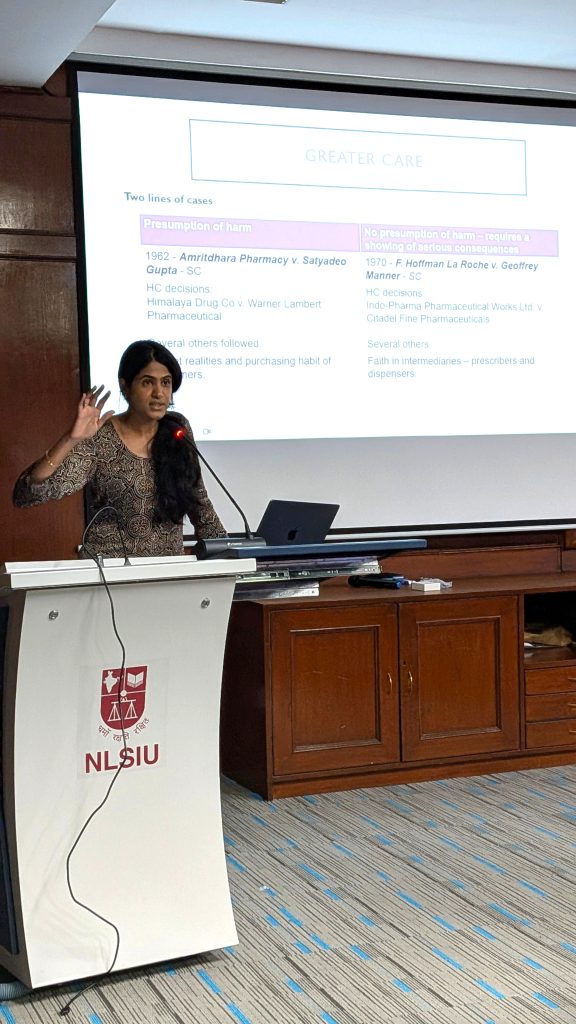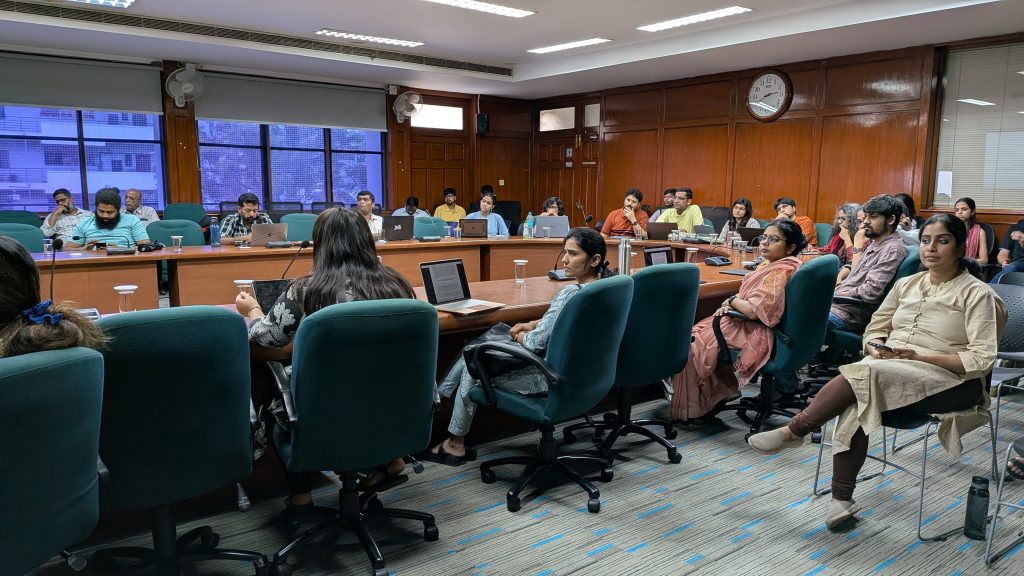NLS Faculty Seminar | ‘The Doctrine of Greater Care: Pharmaceutical Trademarks in India’
Ground Floor Conference Hall, Training Centre
Wednesday, August 6, 2025, 2:30 pm
 In this week’s faculty seminar Aparajita Lath, Assistant Professor of Law, presented her article titled ‘The Doctrine of Greater Care: Pharmaceutical Trademarks in India.’ The seminar was held on August 6, 2025, in the Ground Floor Conference Hall at NLSIU’s Training Centre.
In this week’s faculty seminar Aparajita Lath, Assistant Professor of Law, presented her article titled ‘The Doctrine of Greater Care: Pharmaceutical Trademarks in India.’ The seminar was held on August 6, 2025, in the Ground Floor Conference Hall at NLSIU’s Training Centre.
Abstract
The Indian market for pharmaceuticals is filled with ‘sound-alike’ and ‘look-alike’ drugs. There are several examples of different pharmaceutical companies using the same or similar name for different drugs. Not only do such trademarks co-exist in the market but also on the Trade Marks Register (under class 5). This practice has emerged in India due to the growth of a pharmaceutical industry that specialises in generic drugs. On the assumption that generic medicines are substitutes for the innovator’s brand, the Indian pharmaceutical industry has developed a language of its own. It is common in the trade to use brand names that have common suffixes or prefixes that indicate the drug’s purpose, strength or performance. As a result, the same drug and often different drugs may be sold under similar names by different companies.

Regulatorily and clinically, however, Indian generic drugs may not be interchangeable. Given this reality, the language prevalent in the pharmaceutical market has increased confusion with risk of serious consequences to public health and safety. In the absence of regulatory review of drug names in India, courts and the Trade Mark Office have grappled with resolving issues of confusion and harms to public health and safety in pharmaceutical trademark infringement cases and registration proceedings. While the Supreme Court has applied the doctrine of “greater care” to prevent confusion between pharmaceuticals in India, several inconsistencies prevail. This article traces the development of and defines the “doctrine of greater care” in India. It proposes an expansion to the doctrine suitable for the Indian context. It also provides practical and implementable solutions. These changes are in line with the spirit of the Trade Marks Act which focusses not just on protecting commercial interests but also on public health and safety.

